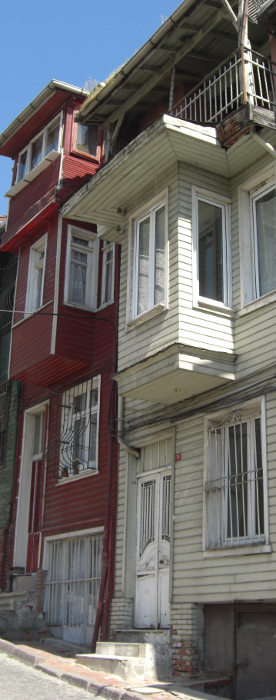Report Launch: Wednesday 24th May. Coin Street Conference centre.
Amidst a festive environment, the report ‘Co-operate not speculate’, by the Co-operative Housing Group, was presented on the 24th May at Coin Street Neighbourhood centre. It was festive because those people attending the presentation were celebrating the validity of coops as a housing alternative for Londoners. As it became clear from the start, either people attending the event were already living in coop housing or such was their aim.
There are over 300 housing coops in London. Nowadays, in the middle of rising rents and housing prices, they have become not only an affordable alternative but also an evidence of commitment and lifestyle. Not by chance, as we were told during the first presentation, feminism, environmentalism, and antiracism were companions of cooperatives’ origin in the UK more than 40 years ago. Coops definitely provide a different way of living.
Many of the speakers that participated in the event provided different perspectives on the coops phenomena: tenants, experts, and representatives of coops associations, among others, coincided in the added value of coops as housing choice. There were many coincidences among them but the heavy involvement and strong commitment of coops members was particularly mentioned. Furthermore, coops in London rely on a highly valuable asset: experience and skills. The knowledge associated to coops might very well indeed provide a serious alternative to owner-occupation or the private rented sector.
The report aims not only at explaining the history and current situation of the coops movement but also to identify challenges in the city of London, and to provide, on the basis of coops experience and skills, elements to contribute to the existing discussion about how to supply affordable and adequate housing. The report definitely aspires to influence the political environment: rather than silently assuming the sadness associated to the impossibility of living in a dynamic and diverse city as London, there is a strong conviction that, following the inspiration of the coops movement itself, it is necessary to question such assumptions and challenge those things that are taken for granted.
Coops were presented as an option that combines the inclusion of preferences of households in housing design and the maintenance of quality standards at a controlled price. The sense of being ‘in control’ of the development by coops members contributes to the generation of strong links and responsibilities towards the community and the dwelling itself, a sense of ‘belonging’. As mentioned by the representative of the London Federation of Coops, some of its dwellings have been inhabited by four generations exhibiting a unique and genuine example of lifetime communities. However, there is an increasing diversity in coops characteristics as, beyond the creation of community, some of them are simply driven by the possibilities of saving money.
While it seems that coops ‘tick all the boxes’, as mentioned in the speech of a coop tenant, there are aspects that deserve further discussion among those involved in coops as well as those in housing policy-making circles: what is the role of coops as social housing in London? How can coops and housing associations positively engage? How can community-led developments benefit from coops and vice-versa? How can legislation and planning be improved to provide plots of affordable land to coops? What alternatives are available to raise money and support coops?
As it was mentioned during the launch, London would be a more interesting place if there were more affordable housing that allowed people to live in and not move out of the city. The restart of coops in London might not solve the housing situation of the city but it would certainly be an opportunity to increase the affordable housing supply allowing to achieve better quality of life for certain collectives, not only young people. And for this to happen, many of the speakers in the event considered vital to deliver the message that coops are all working together with only one voice. Thus, the Renaissance of coops is certainly a reason for celebration. Congratulations for such an interesting report!
Click here to access and download the report.





1 Comments